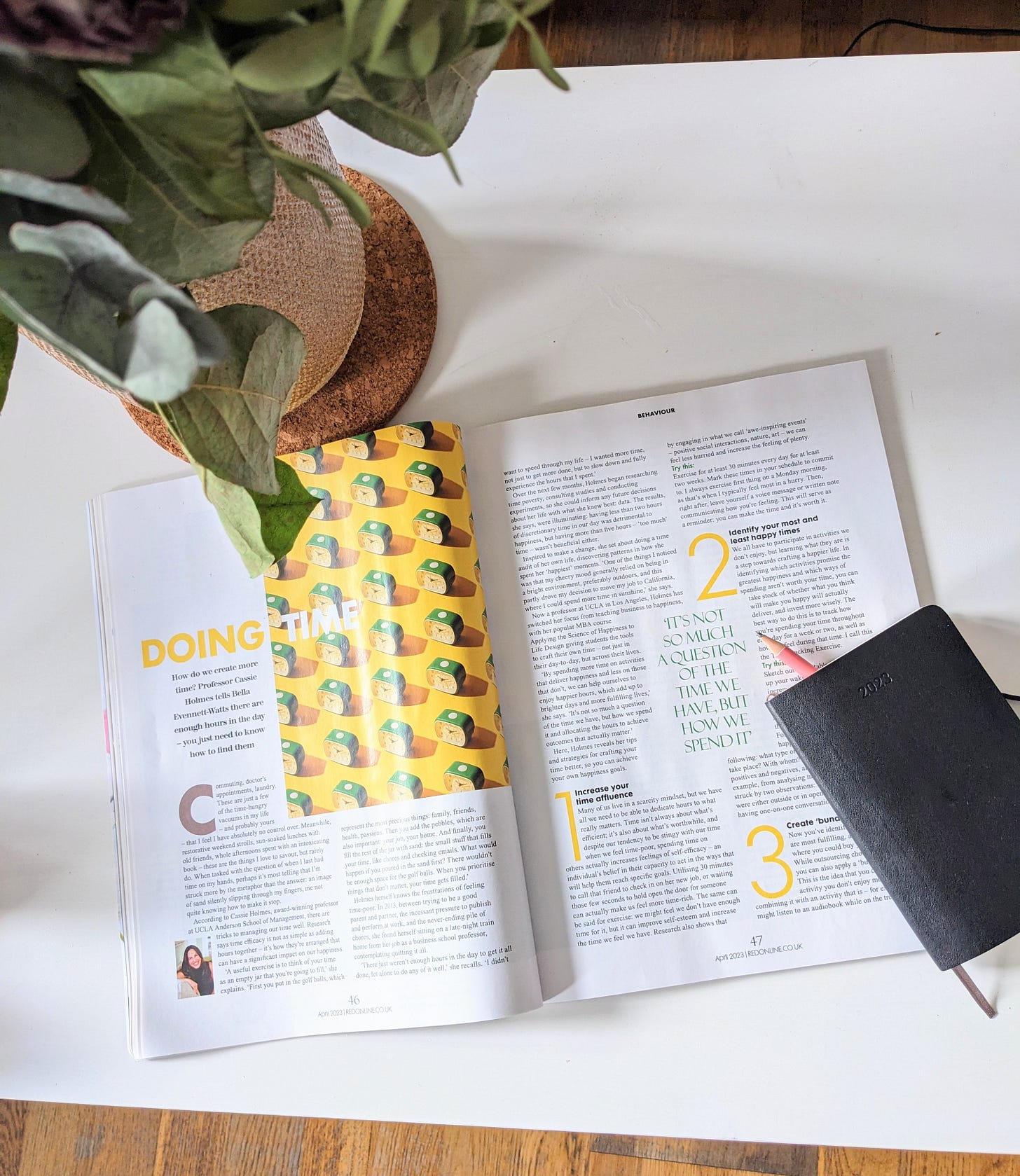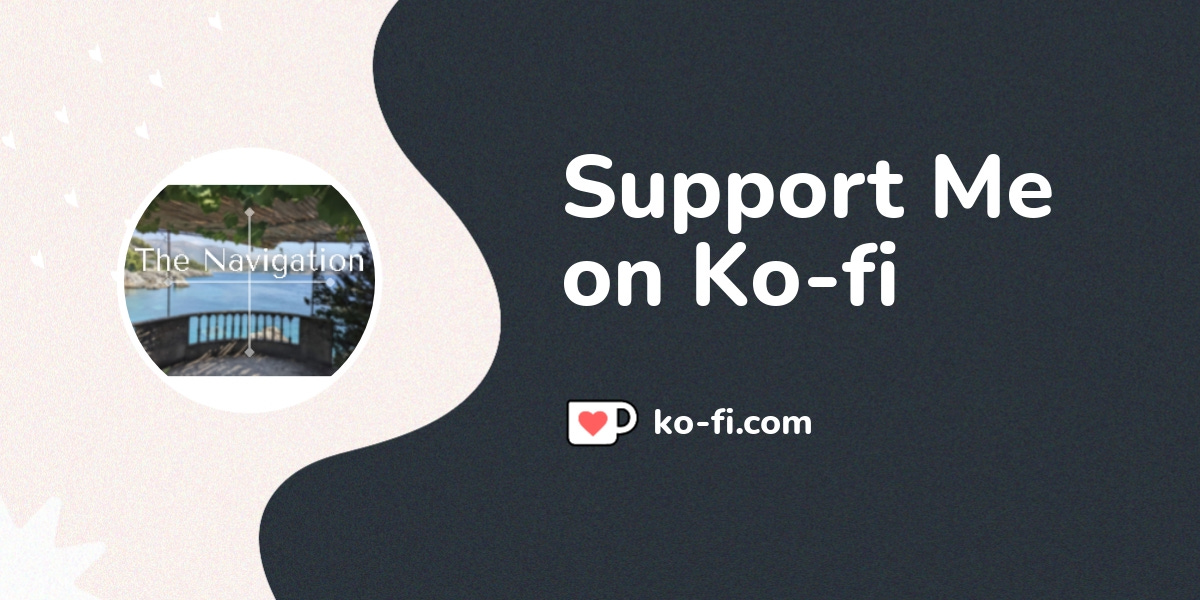Welcome back to the ‘Cultural Compass’ series of The Navigation, where each month I’ll be sharing a round-up of recently consumed culture (usually books, podcasts, articles; sometimes TV, and other miscellaneous items) that’s in some way had an impact on my thinking around navigating life.
Maybe something that’s caused me to reflect on an aspect of my life I want to change, something I want to strive for, a daily routine ‘hack’, or something that I just feel compelled to share, relating to the themes I’m thinking and writing about.
📑 Asking Deeper Questions
I recently came across this piece for Vogue in which Thea Lenarduzzi asks: Why Are People So Hesitant To Ask Their Grandparents About Their Lives? Through sharing her own insights on the matter and personal reflections from interactions with her grandmother, both as she was growing up and then as a writer, Lenarduzzi reminds us that while we might have our own perceptions or ideas of who someone is, in order to get to really know them we must ask deep questions and be prepared for challenging conversations.
I often wish I would have asked for more life insights and stories of days gone by from my maternal grandparents. Both living more than eight decades, their histories were no doubt a treasure trove to learn from. While both liked to chat and tell a tale or two without any prompting, which allowed me to feel as though I had an idea of who they were and how they came to be so, the older I get the more I realise there will have been so much more to discover and understand.
But this needn’t only apply to grandparents - maybe there are great-aunts and -uncles, family friends, and other significant elders in our lives that we might consider wanting to get to know better, beyond how they take their tea and which cake will tickle their fancy. Although, why stop at elders (an ambiguous term in any case)? Who else might we want to get to know better, more deeply, more fully, and what questions can we ask to make that happen?
📑 Life Crafting
Another piece - or really more of a guide - that peaked my interest recently was this take on how to craft a harmonious life. Written by two organisational psychologists, the article-cum-step-by-step-guide highlights the changing nature of work and how this may be affecting us and how we see our lives/needs, before outlining practical approaches to address dis-satisfaction and improve our wellbeing.
Now, I’m not suggesting that after one read through all your life struggles and strains will be solved - whether they be related to an annoying boss, childcare issues, or the cost-of-living crisis - but perhaps having a ‘take what works for you and leave the rest’ approach could help maximise applicability and helpfulness here.
One element included in the guide is performing a time audit, which is an idea I’ve seen cropping up more recently, such as through the work of Cassie Holmes (including on the Goop* podcast, and in an article for the print version of Red Magazine**). The basic notion is around taking the time to map out all your daily/weekly tasks and activities, review how they are meeting or failing your needs, and then adapt/re-frame accordingly.
Perhaps crucially though, the guide ends with a reminder to not use this crafting approach as a strategy to optimise every element, every moment, of one’s life. The idea isn’t to add another thing to do the to-do list, but just to help us consider how we might life more joyfully.
*Just adding the caveat that a mention of Goop is not a wholehearted endorsement. I have many thoughts and feelings on GP’s empire, which I won’t attempt to articulate here, except to say I do enjoy an occasional listen to the podcast which features some pretty interesting guests.
**Yes print media is perhaps an art in decline, but support your favourite print publications when you can! Then pass on your copy to friends and family to extend the joy.
🎧 Money Talks
The final recommendation for this week - an episode of the Literary Friction podcast, focusing on money. I listened on a train when feeling too tired to read, but found the conversation really engaging, both on the side of discussing money in relation to authors and making money from writing, and also on how money features in books and how this is often tied up with class.
As previously mentioned, I find any insights on ‘the life of a writer’ particularly interesting, and there were some great points made in this discussion such as how we (readers, society, other writers etc.) might often view a successful writer as one who makes enough money to live from doing just that. But should that really be the case, or might there be other ways to view success in relation to writing? (I would argue a resounding yes!).
The episode also features the usual reading (and other) recommendations, including Otegha Uwagba’s We Need to Talk About Money, which has long been on my TBR pile and I look forward to diving into an inevitable questioning of my relationship with financial matters…
What’s been influencing your thinking this month? Feel free to share below!
PS…
If you like what you’re reading, and want to help fuel more, you can now buy me a coffee through Ko-fi. While there may be paid subscription features for The Navigation in future, for now all is free to anyone who wants to muse and meander along with me, so this is a way to support my work in the meantime.






